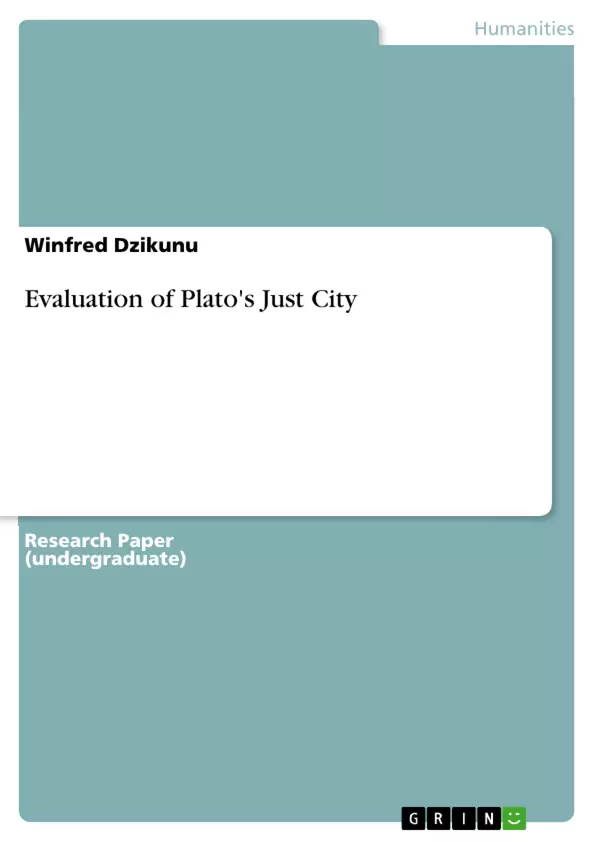Plato, in his book the Republic proposed an idea of a Just City, which he believes is the best way to solve the issue of injustice in the society. My aim in this paper is to analyse the relevance of the Just City of Plate in our contemporary society. I concluded that; the Just State of Plato is relevant in contemporary society since it helps in solving the issue of corruption, favouritism and the empowerment of women to also rule. Edmund Husserl’s Phenomenological method was used.
Table of Contents
- CHAPTER ONE
- INTRODUCTION
- CHATPER TWO
- LITERATURE REVIEW
- CHAPTER THREE
- AN EVALUATION OF PLATO'S JUST STATE
- THE JUST CITY
- CRITICISMS OF THE JUST CITY
- RELEVANCE OF PLATO'S JUST CITY
- AN EVALUATION OF PLATO'S JUST STATE
- CHAPTER FOUR
- CONCLUSION
- REFERENCES
Objectives and Key Themes
This essay aims to analyze the relevance of Plato's Just City in contemporary society. It delves into Plato's concept of a Just City, examines its criticisms, and ultimately assesses its applicability in addressing issues like corruption and inequality in our modern world.
- Plato's concept of a Just City
- Criticisms of Plato's Just City
- Relevance of Plato's Just City in contemporary society
- Corruption and inequality in modern society
- The role of a "Philosopher King" in achieving justice
Chapter Summaries
Chapter One introduces the topic of Plato's Just City and outlines the essay's objective to evaluate its relevance in the modern world. Chapter Two explores existing literature related to Plato's Just City, providing context for the analysis. Chapter Three delves into Plato's conception of a Just City, examining its key features and the criticisms it has faced. It then analyzes the potential relevance of this concept in tackling contemporary societal challenges.
Keywords
The primary focus of this essay lies in examining Plato's Just City, its criticisms, and its relevance in the context of contemporary society. Key terms include Plato, Just State, Contemporary Society, Corruption, Philosopher King, and Private Property.
- Quote paper
- Winfred Dzikunu (Author), 2019, Evaluation of Plato's Just City, Munich, GRIN Verlag, https://www.grin.com/document/492186



